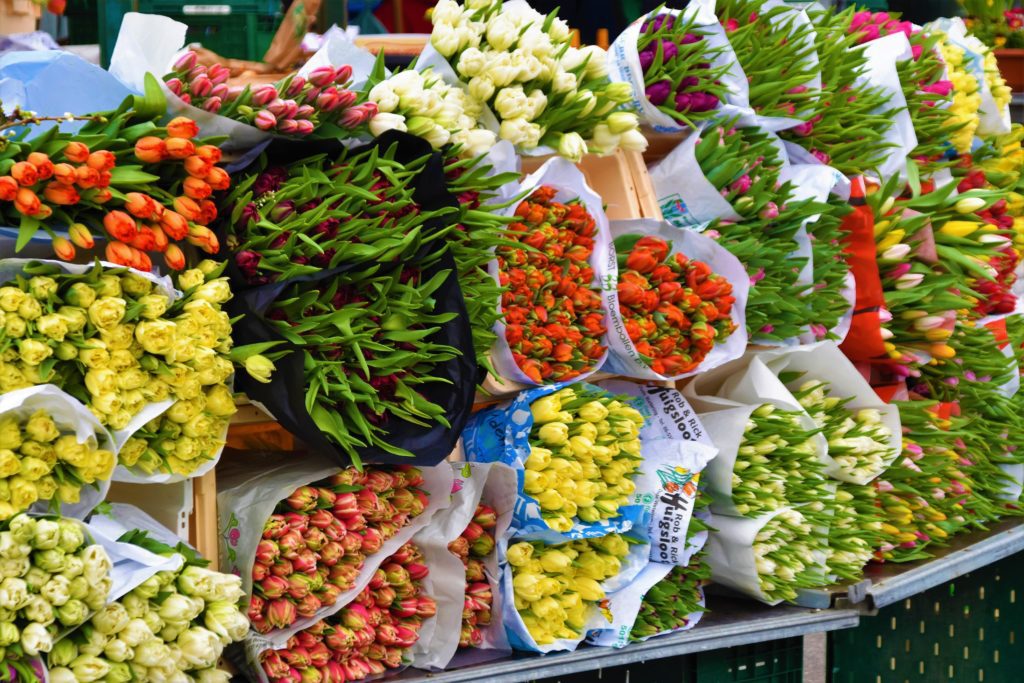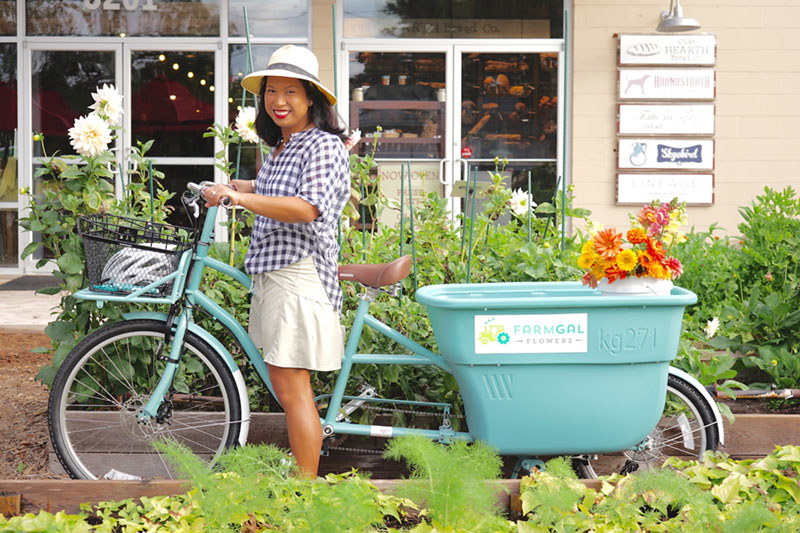Many of us can recall that during holidays such as Valentine’s Day, Mother’s Day, birthdays, etc., all the grocery stores in our area become flooded with flowers. Companies such as ProFlowers and 1800Flowers, to name a few, make their biggest profits during these special occasions by delivering flowers across the nation.
Oftentimes, questions that we fail to ask ourselves include:
- Where are these flowers coming from?
- Who is growing them?
- How are they impacting the world around us?
The floriculture industry is a $33 billion international industry that “includes the production of bedding and garden plants, foliage plants, potted flowering plants, cut flowers, cut cultivated greens, and floriculture materials.”
The production of these flowers has been outsourced to developing countries in order for companies to pay low labor wages to their workers. These countries also share a similar climate year-round in order to consistently produce flowers. Some of these countries include Kenya, Ecuador, and Ethiopia.
Environmental Damages

Since flowers are not as regulated as food and need to be produced in a quicker time-frame, the industry uses an increasing amount of chemicals in order to mass produce these flowers.
The result of this chemical usage is increasing chemical pollution, which is one of the main reasons why the floriculture industry is harmful for the environment. The extensive use of chemicals infiltrates the air, soil, and water supply in surrounding areas.
One-fifth of plant chemicals used in developing countries are actually banned in the United States and are labeled as carcinogens. While heavily inspected for pests during entry to the United States, flowers are not thoroughly inspected for pesticides, since they are not edible plants. “Flowers carry up to fifty times the amount of pesticides allowed on foods”
“The trade, transport, and sales of flowers and plants cause a considerable amount of packaging waste such as boxes, trays, and plastics that can cause pollution due to toxic substances.”
The floriculture industry also poses a threat to the international water supply. Water is being imported to “water-stressed countries” for low-cost production in developing countries. Water is also being extracted from local lakes and streams which can be extremely harmful to the surrounding ecosystems and the people who rely on these water systems for their clean, drinking water supply.
Impacts to Workers
With such an alarming use of agricultural chemicals in the floriculture industry, the extremely low wages, and dangerous working conditions, the workers are being negatively affected every day.

“Over 50 percent of workers report at least one symptom of pesticide exposure.” Overexposure to pesticides can include symptoms such as these but are not limited to:
- Blurred vision
- Nausea
- Abdominal cramps
- Increased bronchial secretions
- Wheezing
- Paralysis
- Convulsions
- Bacterial and fungal cellulitis resulting from de-thorning roses
- Increased risk of cancers of multiple organs
In Kenya, many pregnant women must make the choice of being a mother or keeping their job. While there are laws in Kenya that allow women to take maternity leave without losing their jobs, many women often forfeit those breaks since they will not earn enough money to live during this time.
The floriculture industry also poses a threat to food security issues in these countries since over 3 billion hectares of land have been transferred to foreign investors and most of this land is being used for the floriculture industry. Kenya is the sixth of 10 countries that have been listed under having an extreme food security risk. Many of the farmers in these areas often faced being displaced in order to for foreign companies to build such massive farms.
A Few Solutions
While the floriculture industry provides many jobs and brings economic benefits to these countries, the environmental and social damages outweigh all the possible positives about the industry. In order to reduce the harmful environmental and social impacts, we must gear towards a more sustainable and ethical form of the production process. This can include:
- Buying and growing flowers locally
- Reducing agrochemical usage
- Using environmental friendly agrochemicals instead
- Setting an ethical minimum labor wage
- Improving working conditions
Eileen Tongson & FarmGal Flowers

The IDEAS May 2019 Hive meeting, which is held the first Wednesday of every month at Orlando’s East End Market, hosted Eileen Tongson, the founder of FarmGal Flowers, an organic urban flower company.
Eileen has been very close to nature and gardening for the majority of her life. After growing a flower called Zinnia seeds in her backyard, she became inspired to learn more about the floriculture industry and start up her own local business.
Local flowers require less energy, are safer for the farmers and the customers, last longer than shipped flowers, and enhance the local economy.
FarmGal Flowers offers local flora for events, workshops, and education on gardening and arranging flowers, which are all offered in her local community. Through her business, Eileen has been able to grow a community within Orlando for people who want to share the beauty of gardening and growing flowers.
For our video recording of her presentation, please check out this link provided: https://www.youtube.com/watch?v=Fz7II5pNP7Q
In you are in the Orlando and are interested in some of the services that Eileen offers, check out her company’s website : http://farmgalflowers.com/
For more details on further IDEAS Hive meetings, check out our Facebook: https://www.facebook.com/ideasforus.orlando

Sources:
1. http://phsj.org/wp-content/uploads/2007/10/Symbols-of-Love-HRQ-pdf.pdf
2. https://www.policyforum.net/love-hurts-environmental-risks-in-the-cut-flower-industry/
3. https://www.agmrc.org/commodities-products/specialty-crops/floriculture
4. https://www.nation.co.ke/lifestyle/women/Flower-farm-workers-tough-choice-of-motherhood-or-work/1950830-5035440-nfe38gz/index.html
5. https://www.nation.co.ke/lifestyle/women/Flower-farm-workers-tough-choice-of-motherhood-or-work/1950830-5035440-nfe38gz/index.html
6. https://lib.ugent.be/fulltxt/RUG01/001/894/550/RUG01-001894550_2012_0001_AC.pdf








